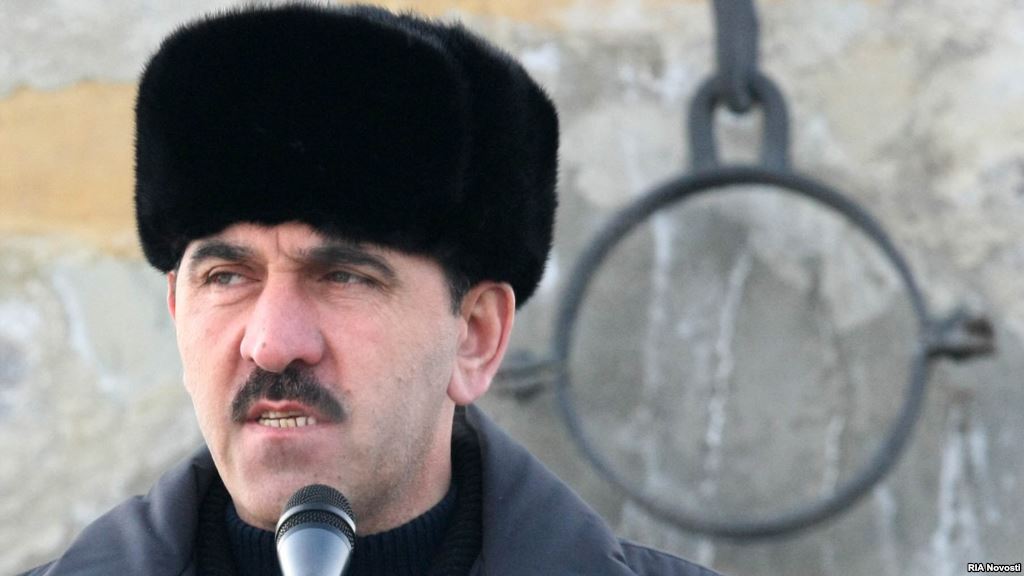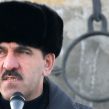
New Russian Legislation Codifies Collective Punishment
Publication: Eurasia Daily Monitor Volume: 10 Issue: 195
By:

Having failed to achieve tangible success in combating the armed jihadi resistance in the North Caucasus, Russia has opted for the path of Joseph Stalin. Interestingly enough, the proposal did not come from any sort of Bolshevik party in the Russian State Duma—indeed, President Vladimir Putin himself introduced the bill to the national legislature on September 27. The lower house of parliament adopted the draft law in the first reading on October 15 and within a week the document was confirmed in the second and third readings. The new legislation envisages that terrorists and their relatives will be indemnified for the losses of victims of terrorist attacks, including moral damages (https://www.pravda.ru/news/society/27-09-2013/1175869-0/). Thus, the principle of collective punishment has finally been officially introduced. The new legislation alters the Criminal Code of the Russian Federation and the Law on Combating Terrorism (https://vz.ru/news/2013/10/25/656724.html).
Prior to introducing the law on collective responsibility for terrorism, it was apparently tested in real life. Rights activists, particularly the human rights group Memorial, have always stressed the impermissibility of punishing family members of a militant. From the summer of 2008 to March 2009, Memorial documented 26 punitive arson attacks targeting relatives of militants in Chechnya alone. The rights activists say that arson attacks are carried out “at a minimum with the Chechen authorities’ consent” in order to put pressure on the relatives of the militants (https://www.memo.ru/d/11477.html).
“We should not lose vigilance,” the head of Ingushetia, Yunus-Bek Yevkurov, said in September. “For the edification of the people who sympathize with and assist the criminals, the homes of the families that give shelter to the bandits will be demolished” (https://ria.ru/incidents/20130916/963579689.html). Yevkurov elaborated further, saying that “the houses where bandits have resided will be demolished and the land expropriated. We will build an apartment block for rural professionals there. All those who provide shelter, food and other assistance to the bandits will be criminally prosecuted for helping the militants. It should be clear to everyone—if you allow someone to enter your home, you bear responsibility for him” (https://www.ingushetia.ru/m-news/archives/019312.shtml#more).
It was possible to think that Yevkurov was reacting harshly to terrorist attacks in the republic. However, a ruling by the European Court of Human Rights in Strasbourg in July (https://europeancourt.ru/tag/tazieva-i-drugie-protiv-rossii/) noted that the home of the parents of rebel leader Emir Magas was blown up back on March 3, 2011 (https://www.angusht.com/index.php?news=42530). Thus, Yevkurov did not arrive at his conclusions spontaneously, under the influence of recent events. Rather, the government gradually crafted this strategy, testing public reaction.
The same developments have affected Dagestan. For example, in May 2013, the houses of relatives of militants in the city of Buinaksk were blown up. While officials claimed the houses were blown up because bombs found in them could not be defused, victims and eyewitnesses said the police simply forced people out of their homes and then demolished the structures without a court decision or prosecutors’ orders (https://golosislama.ru/news.php?id=16963). These were not isolated cases. The new leader of Dagestan, Ramazan Abdulatipov, is an active proponent of such measures against all those tied to the rebels (https://kavpolit.com/net-repressij-net-dzhixada/?print). This past spring, he warned that the heads of the republic’s districts will be held responsible for militant activities in their districts and will be replaced if militancy continues there (https://chernovik.net/content/lenta-novostey/abdulatipov-prigrozil-glavam-mo-uvolneniyami-za-aktivnost-boevikov). To please the Kremlin, the head of Dagestan sometimes allows himself to make statements that are likely to cause problems for him later. For example, he said: “Throw the Wahhabis in the river […] I will bear responsibility for that” (https://www.bigcaucasus.com/events/topday/22-07-2013/84825-vah-0/). The head of the International Crisis Group in Russia, Yekaterina Sokiryanskaya, said after visiting Dagestan that she gained the impression that the authorities knowingly push people to radicalism (https://chernovik.net/content/politika/zhyostkiy-kontur). Everything that the government does creates hatred among locals toward Moscow and radicalizes those who could have stayed outside the insurgency. The government’s bet on repression provides quick results, but does not resolve the problem itself.
To a lesser extent, this problem has also manifested itself in Kabardino-Balkaria. In February 2011, a hand grenade was detonated in the yard of the home of the parents of Astemir Mamyshev, who was thought to be an active member of the armed resistance (https://www.vesti.ru/doc.html?id=431644&cid=8). The authorities in Kabardino-Balkaria had their own methods of putting pressure on the relatives of the militants. A group of “anti-Wahhabi” avengers was invented. The group, called the “Black Hawks,” which existed on the Internet only for a year to a year and a half, turned out to be an awkward attempt by the republic’s counter-terrorist unit to cover up its illegal activities (https://lifenews.ru/#!news/77422).
The adoption of the new national legislation forcing relatives of accused terrorists to compensate victims does not explain what happens when members of militants’ families are unable to pay restitution for the actions of their kin. So the law seems to be more for preventive use than actual material compensation.
The law will spark a chain reaction, involving the militants’ immediate family members, close relatives, and clan members, which will increase the resistance of those discontented with Moscow’s policies in the region. This hastily passed legislation seems to be one of the bullet points in the authorities’ preparations for the Olympics in Sochi.
In any case, the adoption of the law is not going to improve the situation in the region. It will not stop people who have ideological differences with the authorities. Moscow has failed to realize that the jihadists in the North Caucasus are not motivated by commercial interests.




